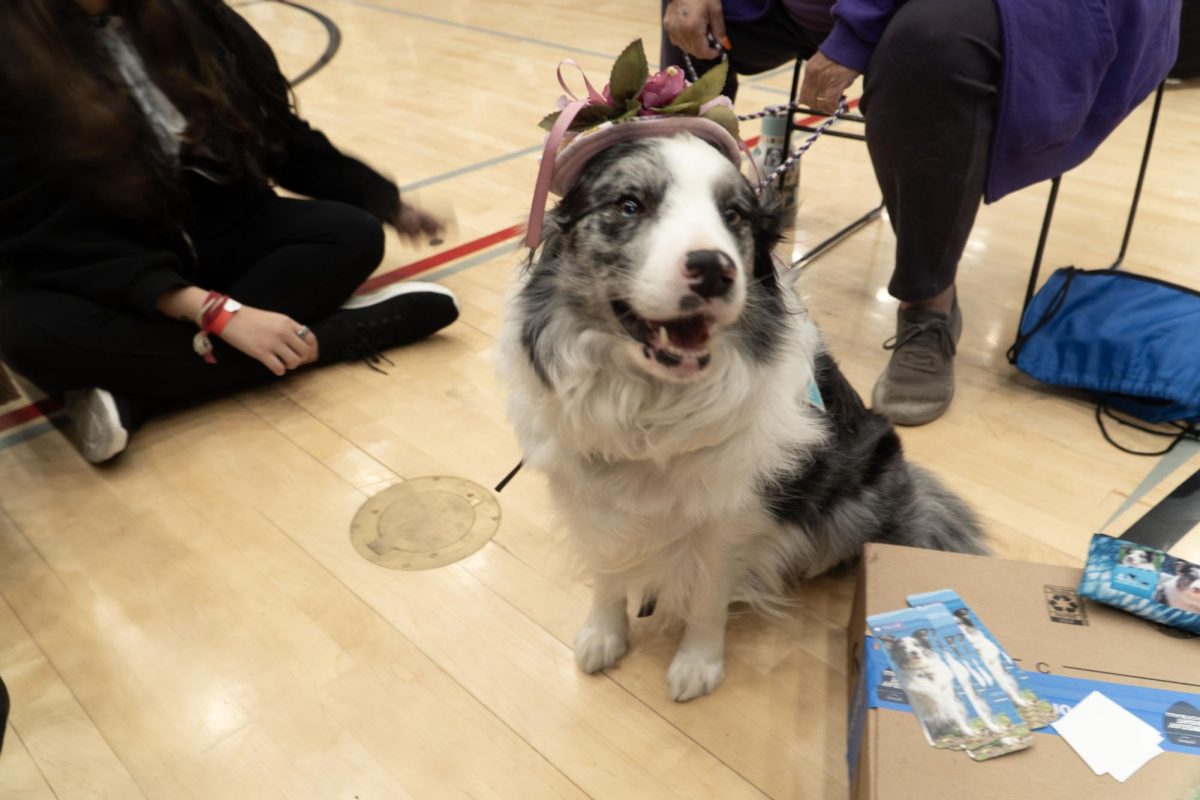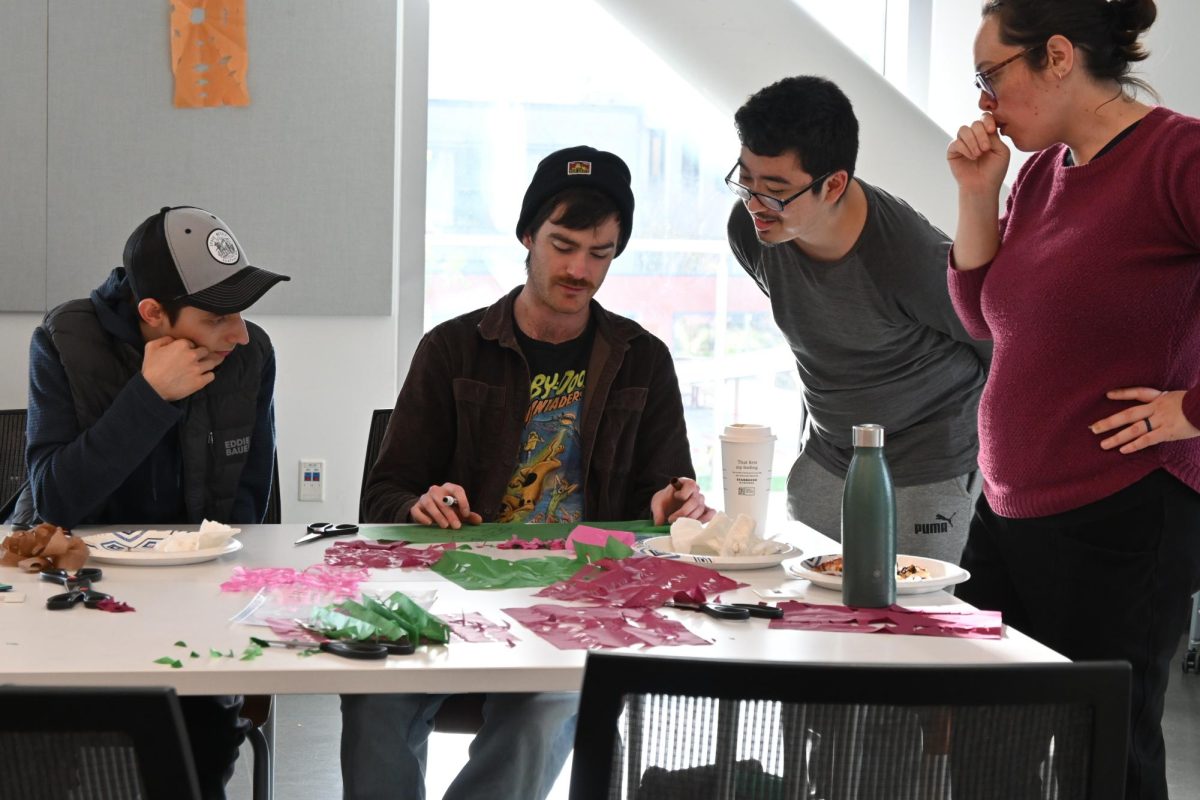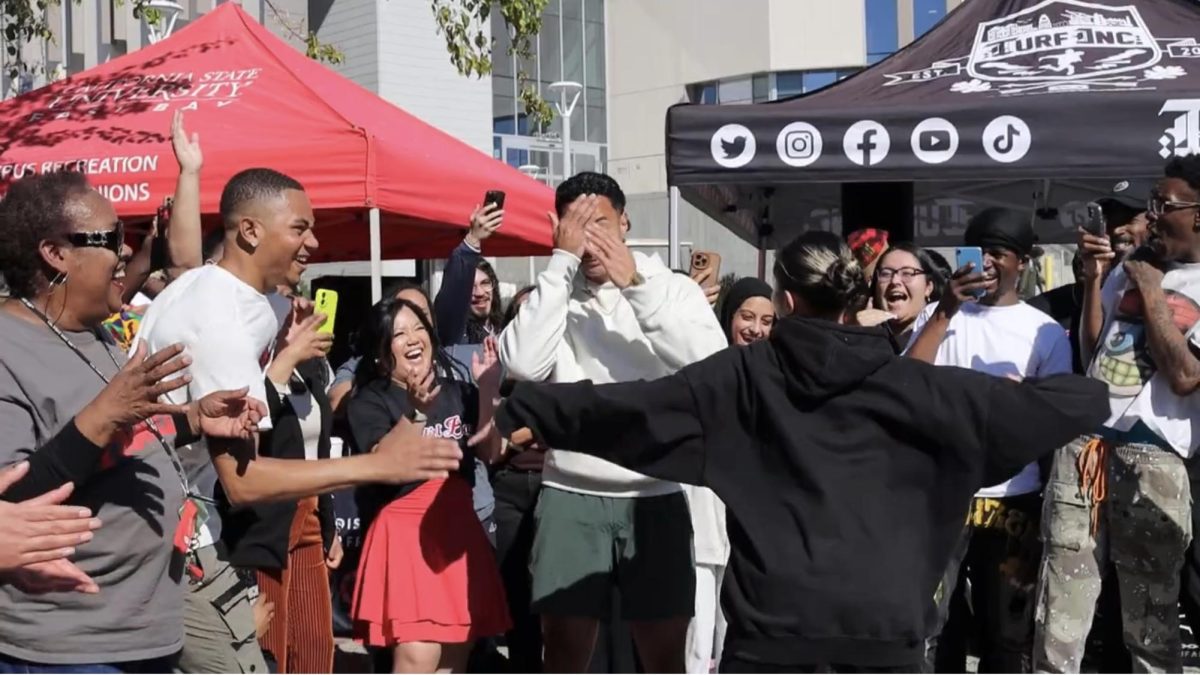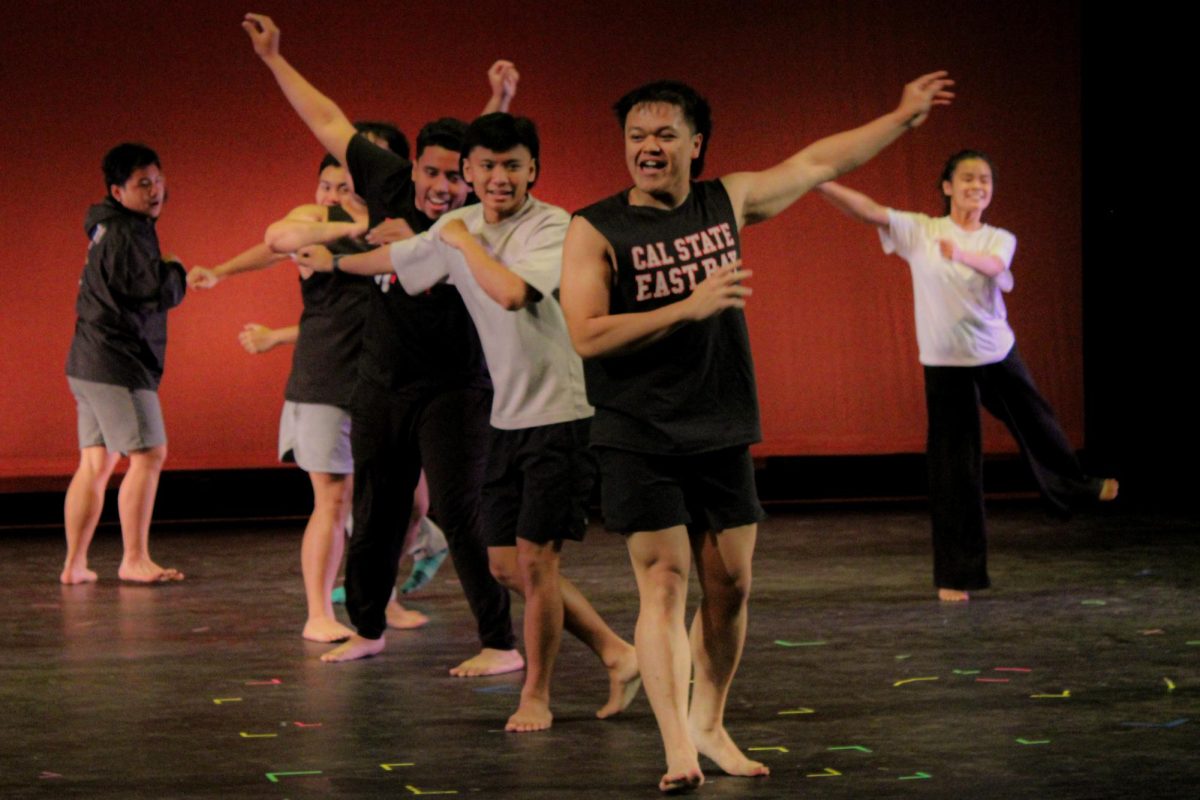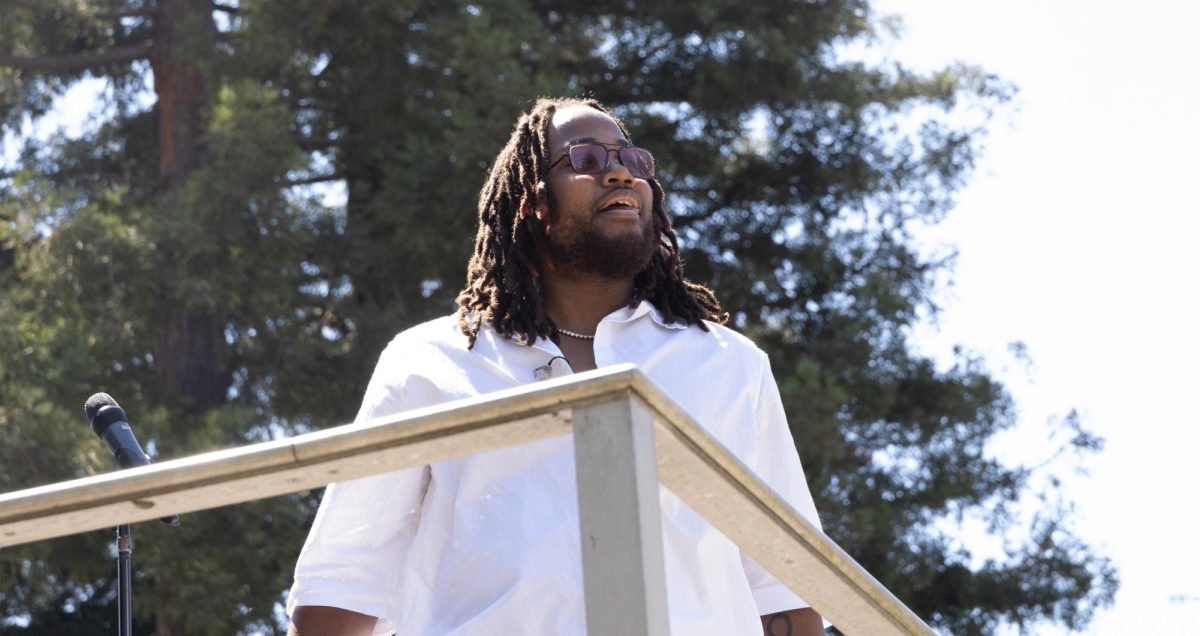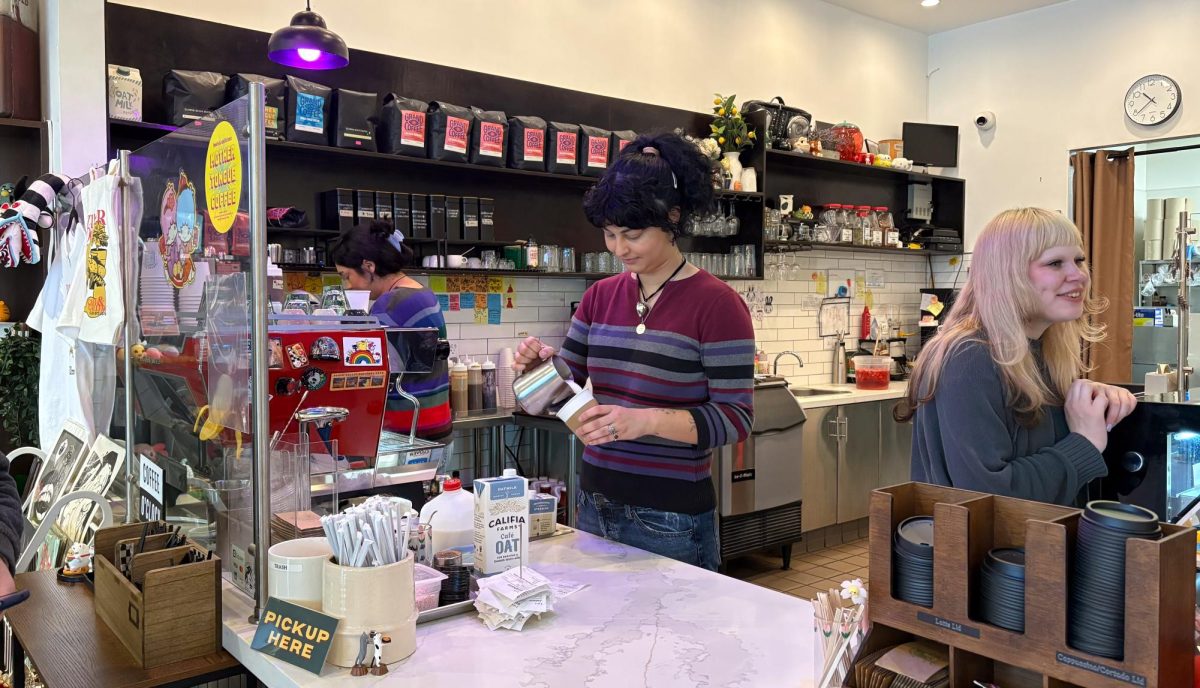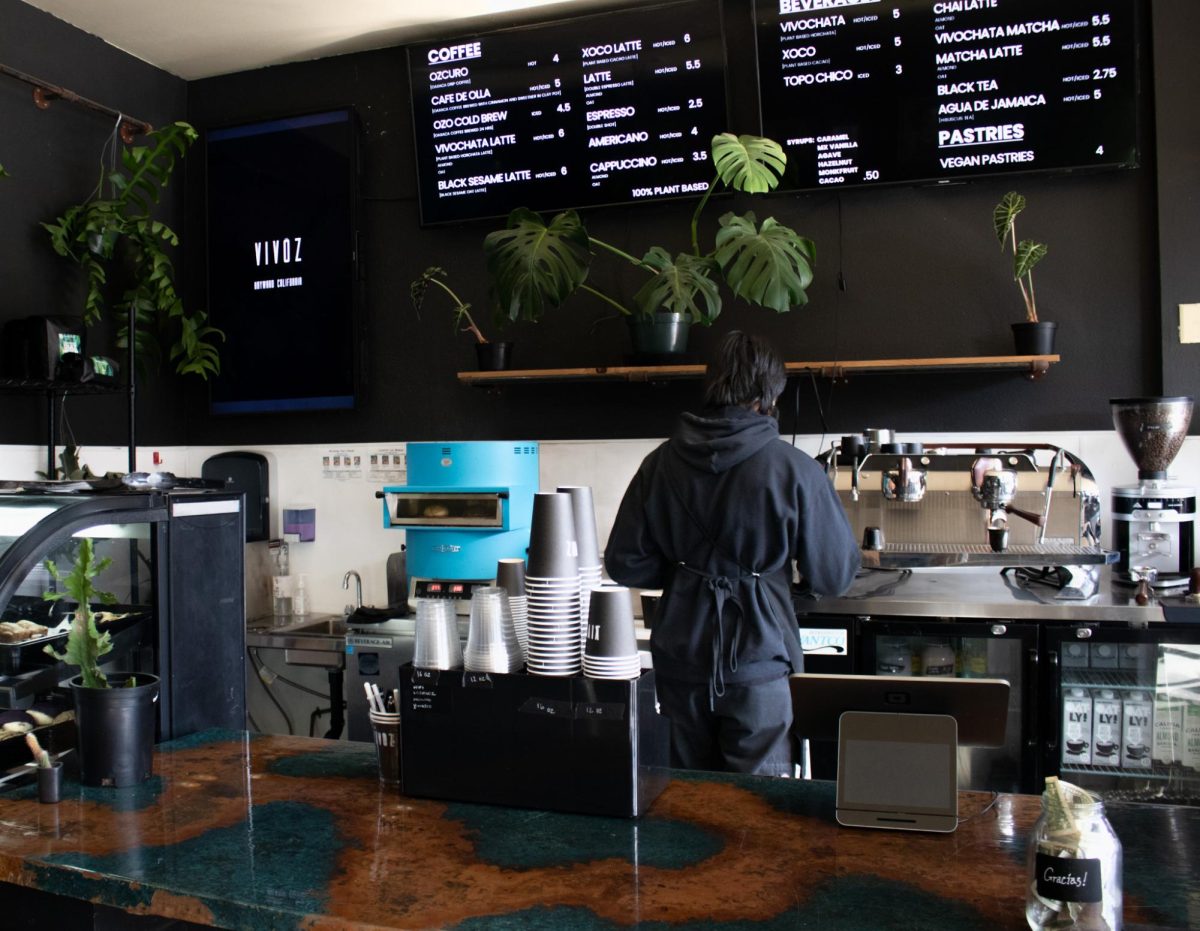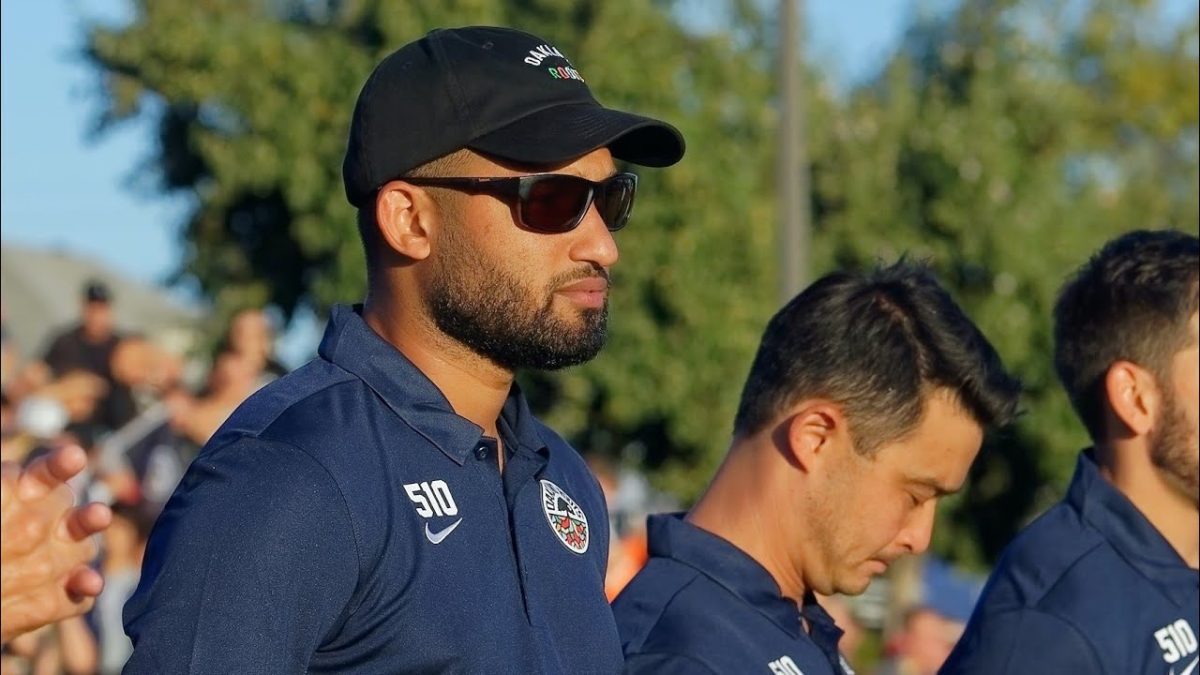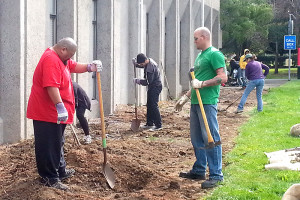
by Robinson Hall.
Students and staff at CSU East Bay wiped their sweaty brows as they dug deep into the dirt to pull tangled roots out of the ground parallel to Robinson Hall.
“We’re ripping out all the roots and getting as much of the dirt ready as we can,” said Sean Wilson, a CSUEB student and employee in the university’s grounds department, as he lugs bags of roots and debris from the area.
This is the first step in the university’s new sustainability project aimed at creating CSUEB’s first water-wise botanical garden, which was made possible with internal revenue funding through the Programmatic Excellence & Innovation in Learning grant.
CSUEB Provost James Houpis, who approved of the PEIL grant in the beginning of the 2012 – 2013 academic school year, said it would promote an institutional learning environment aimed at supporting several innovative education tactics in order to prepare students to meet the demands of the 21st century global environment they live in.
“It’s all internal,” said Houpis. “It’s made possible by some of the funds we have on campus through the reinvesting that has been done over the years.”
Not to be confused with the PELL grant, which is a federal grant that helps undergraduate students in low-income families receive financial aid, the PEIL grant seeks to enable undergraduate students to conduct themselves more responsibly when dealing with sustainability issues on campus.
According to the Association for the Advancement of Sustainability in Higher Education, colleges and universities across the country have been embracing and creating sustainability projects for both ethical and economic reasons.
Professor Michael Lee of the Geology Department, along with professors from other departments, were asked to participate in the PEIL movement by challenging groups of students to brainstorm innovative sustainability projects that could be conducted on the university campus.
“[Lee] worked heavily throughout the summer to get the PEIL grant approved by the administration by studying other campuses and seeing what they did,” said ASI’s Environmental Committee Director, Laurel O’Brien. “He’s really gung ho about getting the school on a more sustainable path.”
After students submitted their proposals for approval to the PEIL team, a group of faculty members and students, the student’s project would then receive a portion of the grant money to create the full development plan for their project.
“The PEIL team uses a rubric to determine whether or not the projects will be funded,” said Houpis. “All projects were instructed to address solutions to today’s issues regarding energy, transportation, waste management, sustainable design and several other sustainability improvements.”
After reviewing student proposals, the PIEL team approved the water-wise botanical garden, proposed by Jeremy Dutra and Kathy Cutting, geology students at CSUEB.
“Our project got approved about two weeks ago,” said Dutra, who now shares a sustainability internship role with Cutting under their PEIL grant proposal. “Since Robinson Hall houses all the geography and environmental studies offices, it just made sense to start the project here.”
“Ideally we would have liked to start the project in a location where lots of students could have access to it and enable them to participate more, but this is a good start,” added Dutra.
Students and others will be able to volunteer in the botanical garden process on April 8 for the “Freshman Day of Service,” where students will lay out compost and put dirt into the ground for cultivation.
Another group that received approval for a PEIL grant is “Project GANAS,” which stands for “Gaining Access ‘N Academic Success.” The project reaches out to the Latino population, a minority group on campus whose frequent dropout rates have contributed to low graduation rates.
“The faculty members who presented the project were Latino themselves, and had a vested interest in helping Latino students succeed,” said O’Brien.
The group will be utilizing the PEIL grant to implement new innovative workshops and learning tools for Latino students in the areas of math and science, so they can better understand their classes and hopefully increase graduation rates and career development.
Ten other sustainability projects have been approved for funding from the PEIL grant this year, five of which are only in the planning stage. These projects were submitted from the general education department as well as the English, math and science departments, with budget requests between $9,000 and $50,000.
According to a recent news release from the Provost’s office, the PEIL grant programs are gaining significant attention from students, staff and administrators across the CSU system and beyond.
The first round of PEIL grant proposal submissions are still being accepted until the first week of May, while the second round of submissions will be accepted and reviewed for approval starting in the fall quarter.


